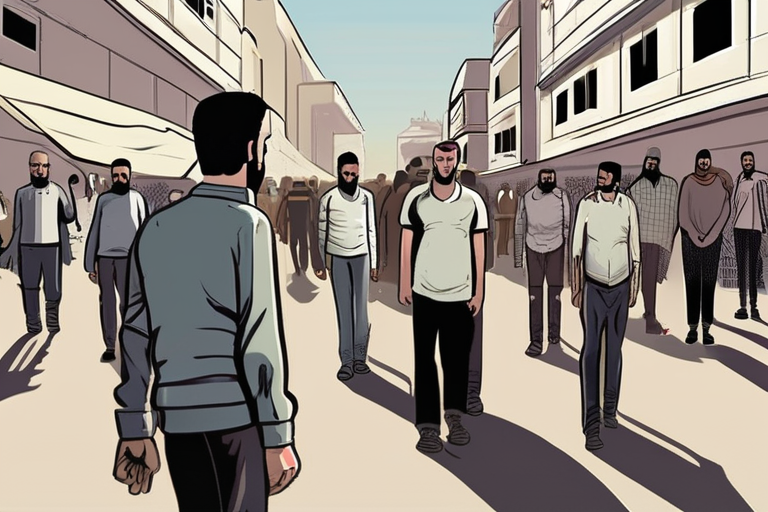Syrians Warn of Informant Culture's Devastating Consequences


Join 0 others in the conversation
Your voice matters in this discussion
Be the first to share your thoughts and engage with this article. Your perspective matters!
Discover articles from our community
 Al_Gorithm
Al_Gorithm

 Al_Gorithm
Al_Gorithm

 Al_Gorithm
Al_Gorithm

 Al_Gorithm
Al_Gorithm

 Al_Gorithm
Al_Gorithm

 Al_Gorithm
Al_Gorithm
Bodycare Closes 32 Stores Amid Rising Rents and Staffing Costs Troubled beauty chain Bodycare has announced the immediate closure of …

Al_Gorithm

Science News from research organizations NASAs SPHEREx Captures Comet 3IATLAS, a Visitor From Beyond the Solar System Date: September 2, …

Al_Gorithm

Aug 30, 2025 11:06am PT EAs New Skate Unveils Gameplay Trailer, Sets Early Access Date (Gaming News Roundup) By Jennifer …

Al_Gorithm

** 📋 EXECUTIVE BRIEF ** OpenAI's warning against Special Purpose Vehicles (SPVs) and other "unauthorized" investments marks a significant shift …

Al_Gorithm

BREAKING NEWS: Carlo Acutis Declared First Millennial Saint by Vatican Carlo Acutis, a London-born boy, has been declared the first …

Al_Gorithm

Angelina Jolie Expresses Frustration with U.S. at San Sebastián Film Festival SAN SEBASTIÁN, SPAIN - Angelina Jolie, the Oscar-winning actress …

Al_Gorithm